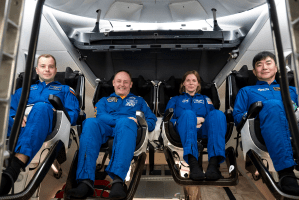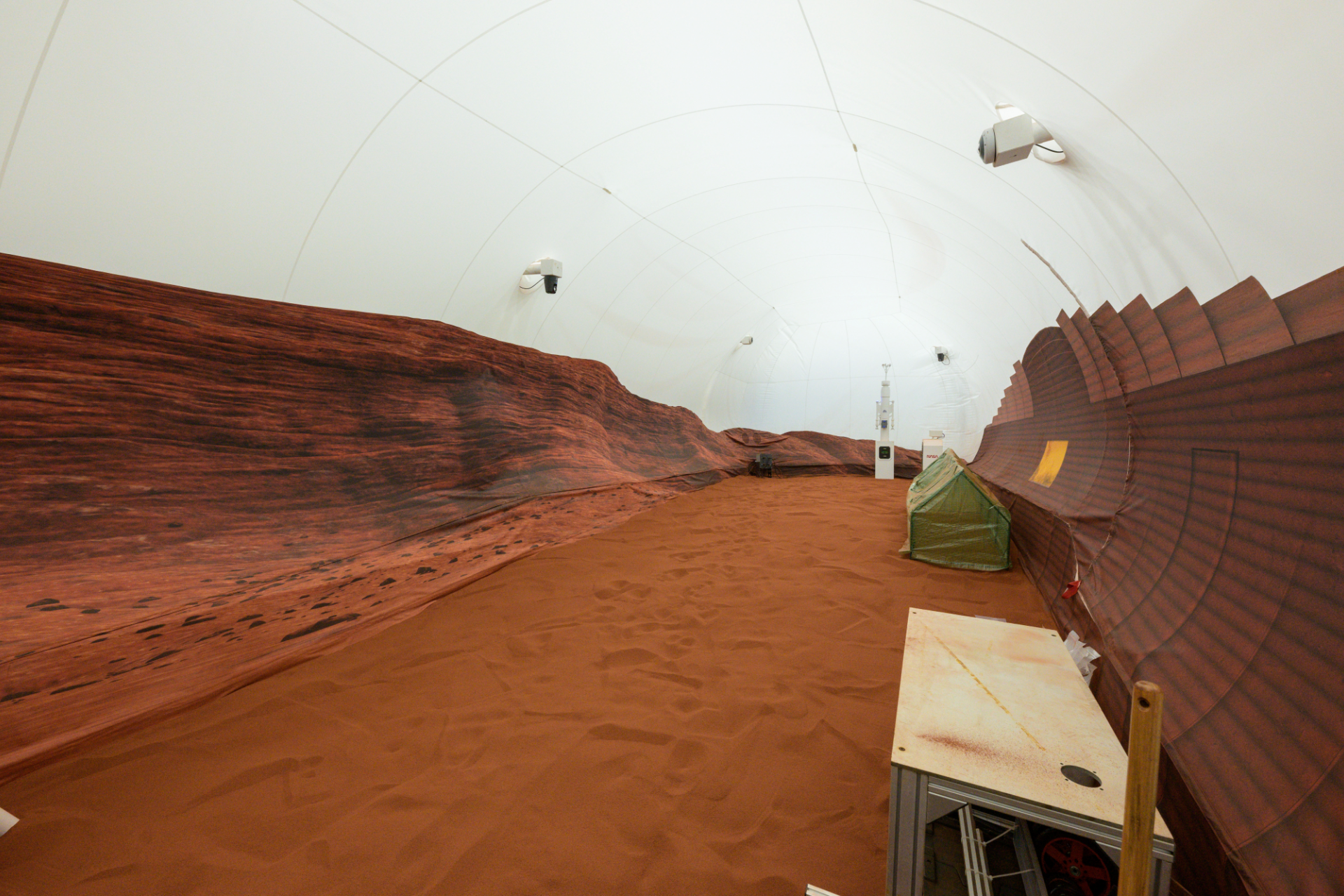
Four research volunteers will soon participate in NASA's year-long simulation of a Mars mission inside a habitat at the agency's Johnson Space Center in Houston. This mission will provide NASA with foundational data to inform human exploration of the Moon, Mars, and beyond.
Ross Elder, Ellen Ellis, Matthew Montgomery, and James Spicer enter into the 1,700-square-foot Mars Dune Alpha habitat on Sunday, Oct. 19, to begin their mission. The team will live and work like astronauts for 378 days, concluding their mission on Oct. 31, 2026. Emily Phillips and Laura Marie serve as the mission's alternate crew members.
Through a series of Earth-based missions called CHAPEA (Crew Health and Performance Exploration Analog), carried out in the 3D-printed habitat, NASA aims to evaluate certain human health and performance factors ahead of future Mars missions. The crew will undergo realistic resource limitations, equipment failures, communication delays, isolation and confinement, and other stressors, along with simulated high-tempo extravehicular activities. These scenarios allow NASA to make informed trades between risks and interventions for long-duration exploration missions.
"As NASA gears up for crewed Artemis missions, CHAPEA and other ground analogs are helping to determine which capabilities could best support future crews in overcoming the human health and performance challenges of living and operating beyond Earth's resources - all before we send humans to Mars," said Sara Whiting, project scientist with NASA's Human Research Program at NASA Johnson.
Crew members will carry out scientific research and operational tasks, including simulated Mars walks, growing a vegetable garden, robotic operations, and more. Technologies specifically designed for Mars and deep space exploration will also be tested, including a potable water dispenser and diagnostic medical equipment.
"The simulation will allow us to collect cognitive and physical performance data to give us more insight into the potential impacts of the resource restrictions and long-duration missions to Mars on crew health and performance," said Grace Douglas, CHAPEA principal investigator. "Ultimately, this information will help NASA make informed decisions to design and plan for a successful human mission to Mars."
This mission, facilitated by NASA's Human Research Program, is the second one-year Mars surface simulation conducted through CHAPEA. The first mission concluded on July 6, 2024.
The Human Research Program pursues methods and technologies to support safe, productive human space travel. Through applied research conducted in laboratories, simulations, and aboard the International Space Station, the program investigates the effects spaceflight has on human bodies and behaviors to keep astronauts healthy and mission-ready.
Primary Crew
Ross Elder, Commander
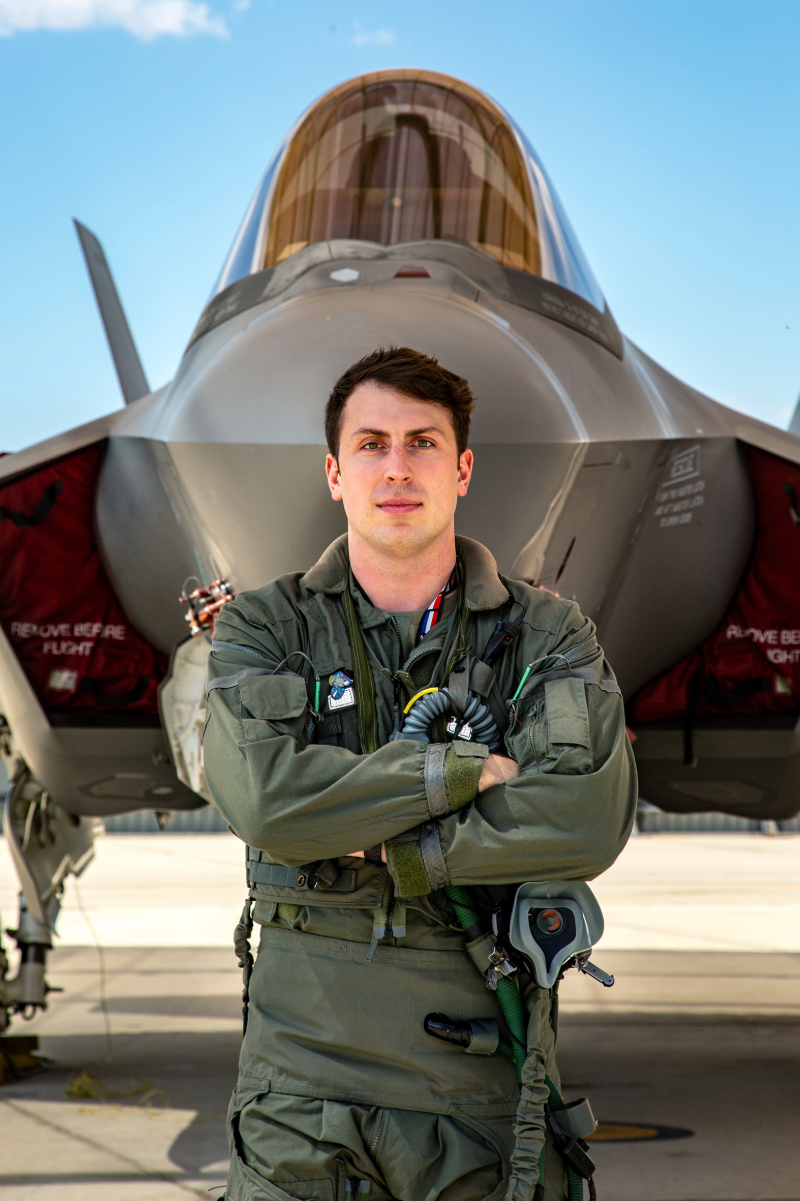 Ross Elder, from Williamstown, West Virginia, is a major and experimental test pilot in the United States Air Force. At the time of his selection, he served as the director of operations of the 461st Flight Test Squadron. He has piloted over 35 military aircraft and accumulated more than 1,800 flying hours, including 200 combat hours, primarily in the F-35, F-15E/EX, F-16, and A-10C. His flight test experience focuses on envelope expansion, crewed-uncrewed teaming, artificial intelligence, autonomy, mission systems, and weapons modernization.
Ross Elder, from Williamstown, West Virginia, is a major and experimental test pilot in the United States Air Force. At the time of his selection, he served as the director of operations of the 461st Flight Test Squadron. He has piloted over 35 military aircraft and accumulated more than 1,800 flying hours, including 200 combat hours, primarily in the F-35, F-15E/EX, F-16, and A-10C. His flight test experience focuses on envelope expansion, crewed-uncrewed teaming, artificial intelligence, autonomy, mission systems, and weapons modernization.
Elder earned a Bachelor of Science in astronautical engineering from the U.S. Air Force Academy in Colorado Springs, Colorado, and commissioned as an Air Force officer upon graduation. He earned a Master of Science in mechanical engineering from the University of Colorado in Colorado Springs and a master's degree in flight test engineering from the U.S. Air Force Test Pilot School at Edwards Air Force Base in California.
Ellen Ellis, Medical Officer
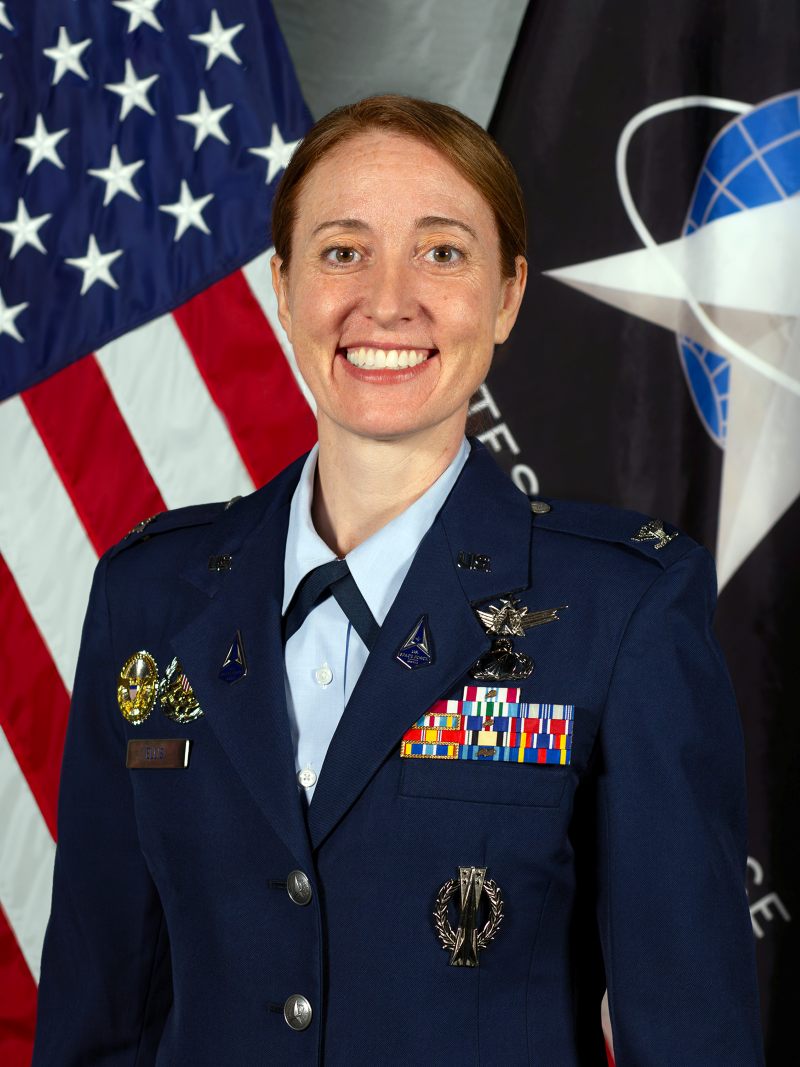 Ellen Ellis, from North Kingstown, Rhode Island, is a colonel and an acquisitions officer in the United States Space Force. She currently serves as a senior materiel leader in the National Reconnaissance Office (NRO) Communications Systems Directorate. She is responsible for fielding commercial cloud and traditional information technology hosting solutions and building modernized data centers for the NRO. She previously served as an Intercontinental Ballistic Missile operations officer and GPS satellite engineer, and she also developed geospatial intelligence payloads and ground processing systems.
Ellen Ellis, from North Kingstown, Rhode Island, is a colonel and an acquisitions officer in the United States Space Force. She currently serves as a senior materiel leader in the National Reconnaissance Office (NRO) Communications Systems Directorate. She is responsible for fielding commercial cloud and traditional information technology hosting solutions and building modernized data centers for the NRO. She previously served as an Intercontinental Ballistic Missile operations officer and GPS satellite engineer, and she also developed geospatial intelligence payloads and ground processing systems.
She earned a Bachelor of Science in aerospace engineering at Syracuse University in New York and holds four master's degrees, including a Master of Science in systems engineering from the Naval Postgraduate School in California, and a Master of Science in emergency and disaster management from Georgetown University in Washington.
Matthew Montgomery, Science Officer
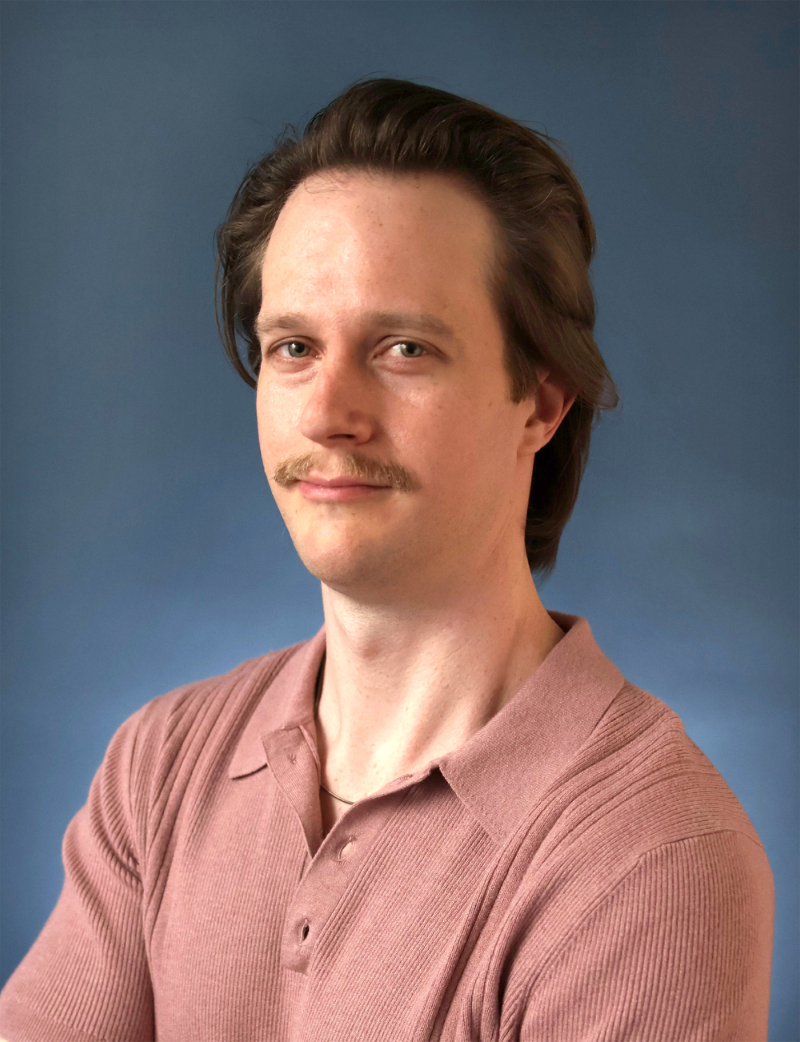 Matthew Montgomery, from Los Angeles, is a hardware engineering design consultant who works with technology startup companies to develop, commercialize, and scale their products. His focus areas include LED lighting, robotics, controlled environment agriculture, and embedded control systems.
Matthew Montgomery, from Los Angeles, is a hardware engineering design consultant who works with technology startup companies to develop, commercialize, and scale their products. His focus areas include LED lighting, robotics, controlled environment agriculture, and embedded control systems.
Montgomery earned a Bachelor of Science and a Master of Science in electrical engineering from the University of Central Florida. He is also a founder and co-owner of Floating Lava Studios, a film production company based in Los Angeles.
James Spicer, Flight Engineer
 James Spicer is a technical director in the aerospace and defense industry. His experience includes building radio and optical satellite communications networks; space data relay networks for human spaceflight; position, navigation, and timing research; and hands-on spacecraft design, integration, and tests.
James Spicer is a technical director in the aerospace and defense industry. His experience includes building radio and optical satellite communications networks; space data relay networks for human spaceflight; position, navigation, and timing research; and hands-on spacecraft design, integration, and tests.
Spicer earned a Bachelor of Science and Master of Science in aeronautics and astronautics, and holds a Notation in Science Communication from Stanford University in California. He also holds commercial pilot and glider pilot licenses.
Alternate Crew
Emily Phillips
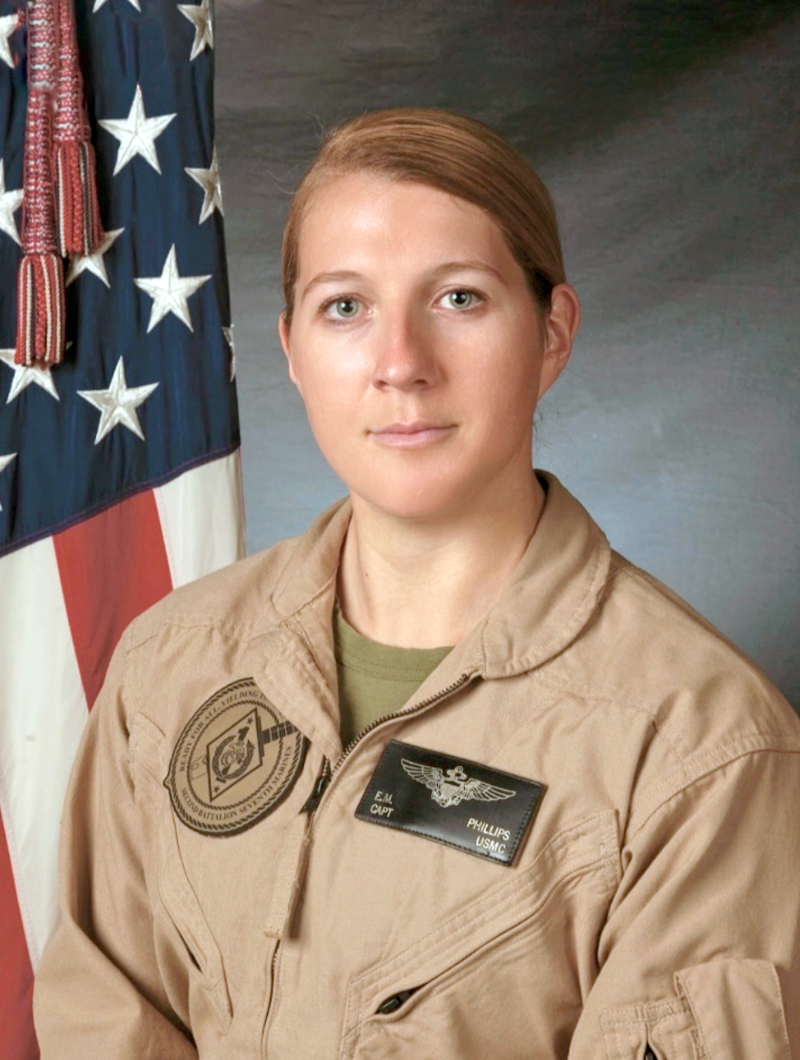 Emily Phillips, from Waynesburg, Pennsylvania, is a captain and pilot in the United States Marine Corps. She currently serves as a forward air controller and air officer attached to an infantry battalion stationed at the Marine Corps Air Ground Combat Center in Twentynine Palms, California.
Emily Phillips, from Waynesburg, Pennsylvania, is a captain and pilot in the United States Marine Corps. She currently serves as a forward air controller and air officer attached to an infantry battalion stationed at the Marine Corps Air Ground Combat Center in Twentynine Palms, California.
Phillips earned a Bachelor of Science in computer science from the U.S. Naval Academy in Annapolis and commissioned as a Marine Corps officer upon graduation. She attended flight school, earning her Naval Aviator wings and qualifying as an F/A-18C Hornet pilot. Phillips has completed multiple deployments to Europe and Southeast Asia.
Laura Marie
 Born in the United Kingdom, Laura Marie immigrated to the U.S. in 2016. She is a commercial airline pilot specializing in flight safety, currently operating passenger flights in Washington.
Born in the United Kingdom, Laura Marie immigrated to the U.S. in 2016. She is a commercial airline pilot specializing in flight safety, currently operating passenger flights in Washington.
Marie began her aviation career in 2019 and has amassed over 2,800 flight hours. She holds a Bachelor of Arts in philosophy and a Master of Science in aeronautics from Liberty University in Lynchburg, Virginia. In addition to her Airline Transport Pilot License, she also possesses flight instructor and advanced ground instructor licenses. Outside the flight deck, Marie dedicates her time to mentoring and supporting aspiring pilots as they navigate their careers.


